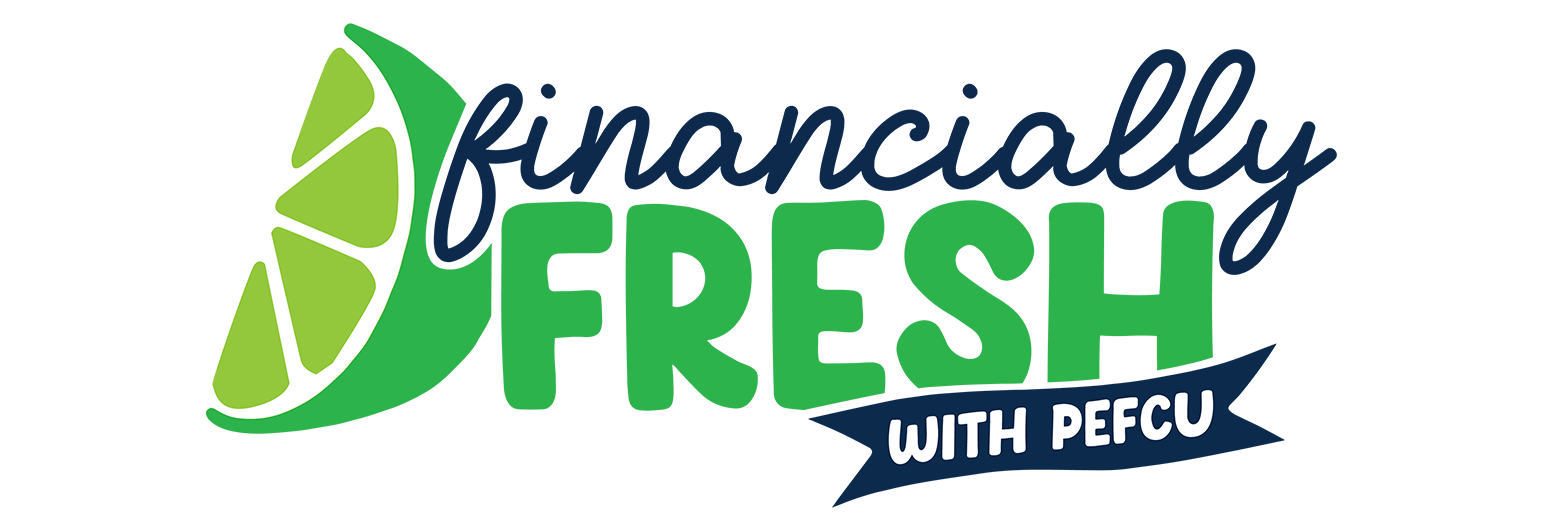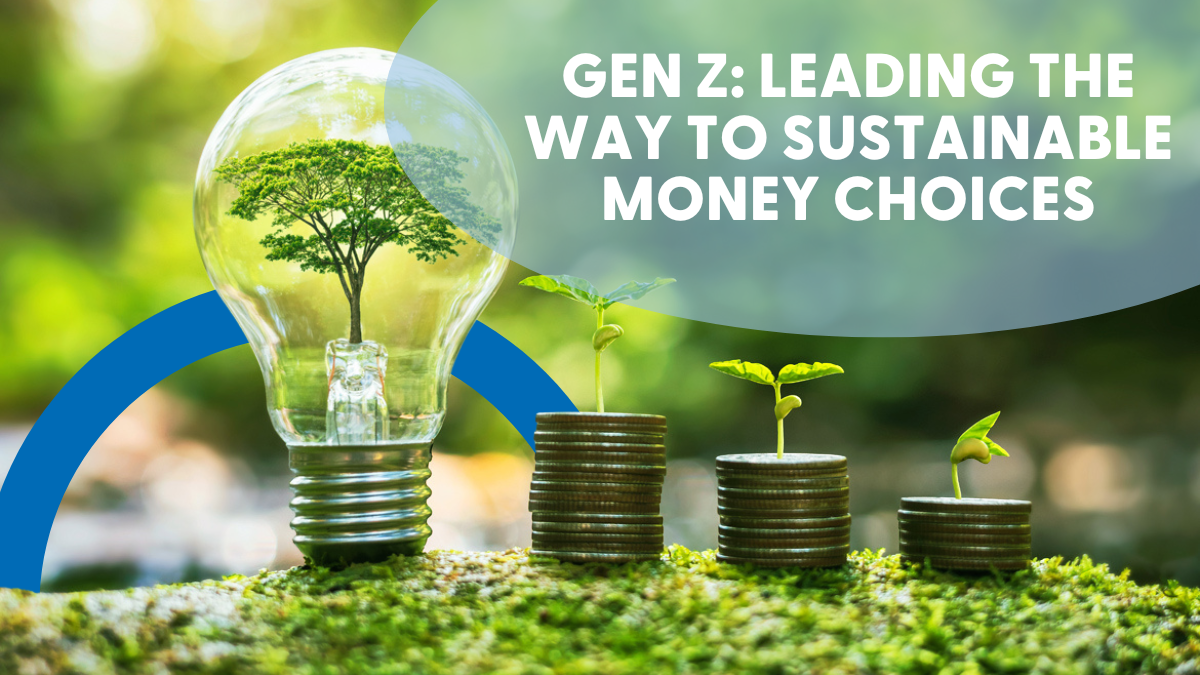August 5, 2024Gen Z: Leading the Way to Sustainable Money Choices
As climate and environmental concerns continue to grow in popularity, Gen Z has quickly become the face and champion of this great movement. While everyone is concerned with the upkeep and preservation of the environment, this generation is leading the way in incorporating alternatives to become more eco-friendly.
Their dedication is encouraging many businesses and organizations to change how they manufacture products, deliver services, and operate daily. These changes also include how people can interact with and spend their money through more environmentally friendly methods.
In this article, we’ll reveal the impact consumer choices have on the environment, how simple changes can lead to more sustainable living, and ways to manage your finances in an eco-friendly manner.
The Environmental Impacts of Consumer Choices
Every purchase someone makes has a ripple effect on the environment. The production, packaging, and disposal of goods are major contributors to environmental degradation. Mass production can deplete natural resources and generate greenhouse gas emissions. Excessive packaging and disposable products lead to pollution and landfill overflow.
By grasping the full extent that even minor purchases can have on the environment, everyone can begin to make more informed and sustainable consumer choices.
Tips to Live More Sustainably
While sustainable living sounds like the latest buzz-worthy phrase, it’s more about making conscious decisions about how your everyday actions impact the environment. Little tweaks in your daily routine and lifestyle can have a profound impact overall.
Here are several ideas on how you can put sustainable living into practice:
- Energy Use:
Investing in energy-efficient appliances, thermostats, light bulbs, and other products around your home can reduce your environmental footprint. Even simple changes like unplugging electronics and appliances when not in use or using smart outlet plugs with automatic timers can significantly lower energy consumption.
- Food Consumption:
Locally grown and produced foods are ideal choices because they limit transportation and reduce mass production. Visiting your local farmer’s market is a great way to eat green and support your community. You might even consider cost-saving trends like “Meatless Mondays.”
- Transportation:
Using public transportation, carpooling, biking, or walking whenever possible can significantly reduce your carbon footprint and help you save on fuel costs. If a car is essential for your lifestyle or commute to work, you might consider upgrading to a hybrid or electric vehicle to save money.
- Reusables:
In an attempt to reduce paper and plastic waste, companies continue to invent new reusable products at lightning speed. Consumers can now buy everything from reusable paper towels and grocery bags to silicone-sealable bags and reusable dryer sheets.
Making the switch to reusable alternatives over single-use products has a tremendous impact on waste reduction and can also help you save money over the long term.
- Support Green Businesses:
Where you choose to spend your money also impacts the environment. Many manufacturers are embracing eco-friendly processes that eliminate waste, reduce packaging, and operate in zero-emissions factories.
You can identify green-friendly businesses through certifications on their packaging or website, such as:
- Fair Trade
- USDA Organic
- Energy Star
- Certified B Corporation
- OEKO-TEX
- Rainforest Alliance
Eco-Friendly Ways to Manage Your Finances
You can help the environment in more areas besides your spending and consumption habits. How you manage your day-to-day finances can also reduce waste and create a healthier planet. Here are several tips on how to go green with the credit union:
- Enroll in eStatements:
Thousands of members belong to the credit union. Due to rules and regulations, the credit union must provide statements to members either monthly or quarterly, depending on your account type(s). By enrolling in eStatements, you eliminate the need to print and mail a physical statement. Every member that enrolls in this service helps to reduce paper waste and transportation emissions.
eStatements are securely stored and accessible through online or mobile banking. You can print out an individual statement at home or at work if necessary.
- Use Online & Mobile Banking:
Through digital banking platforms, you’re able to conduct most routine banking transactions in a few clicks. Check balances, transfer money, make loan payments, and more – without needing to drive and visit a local branch.
- Schedule Bill Payments Online:
With online bill pay, you can instantly pay bills from most major businesses and utility companies. This payment method is quicker and reduces the need to write and mail paper checks monthly.
- Enroll in Direct Deposit:
Skip the trip to the credit union and have your paychecks deposited directly into your account on payday. Enrolling in direct deposit is easy: provide your employer with a copy of a voided check, and they will do the rest. You can even enroll in direct deposit of other programs, such as Social Security, government benefits, and tax refunds.
If you’re a Publix associate, you can enroll in direct deposit by logging in to PASSport. You’ll need PEFCU’s routing/ABA number: 263179817, and your full account number (not just your member number).
- Apply Online:
Whether you’re applying for a loan or opening a new account, you can begin (and often complete) the process entirely online. This will save you time and paper and eliminate the need to commute to a local branch.
Takeaway
Each person has a responsibility to keep our planet healthy and beautiful. Minor tweaks in our lifestyles and daily routines can lead to lower waste, less emissions, and a greener tomorrow. From how you manage your money to where you choose to spend it, you can positively impact the environment and encourage businesses to do the same.
We’re Here to Help!
While digital products and services are more environmentally friendly, some members find this transition challenging. If you want to learn more about our eco-friendly financial tools or have questions about enrolling in specific services, we’re here to help.
Please contact us by calling 800-226-6673 or stop by any of our convenient branch locations.
Each individual’s financial situation is unique and readers are encouraged to contact PEFCU when seeking financial advice on the products and services discussed. This article is for educational purposes only; the authors assume no legal responsibility for the completeness or accuracy of the contents.


